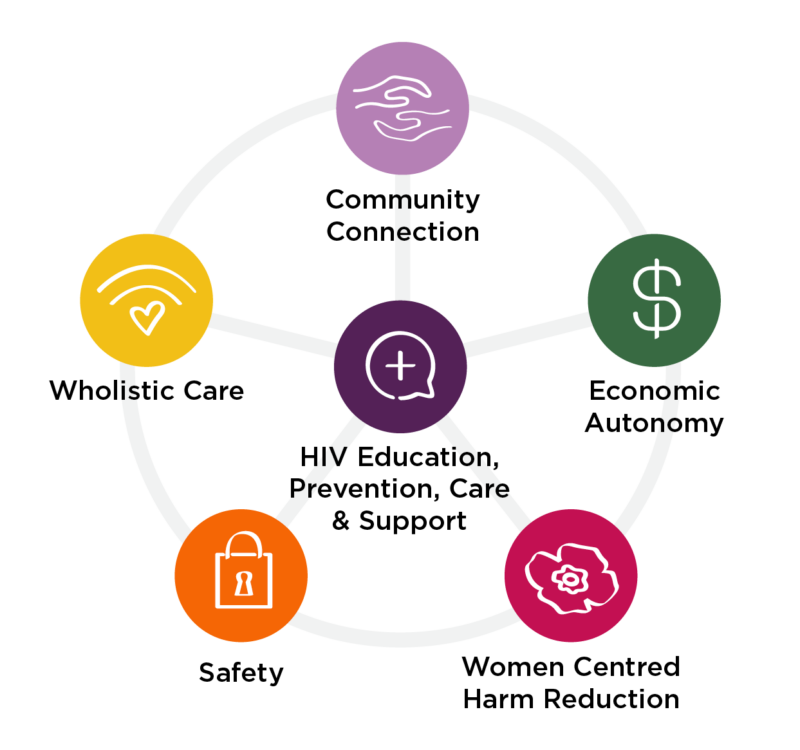How We Work
Explore the frameworks and approaches that underpin WHAI’s work.
The WHAI Framework
The Who, What, Why & How of WHAI helps illustrate the interconnectedness behind the areas in which WHAI works.
Who, What, Why & How
A Community Development Approach
WHAI works from a community development perspective. This means that we work closely with community members to assist in identifying and addressing shared health concerns. A community development approach means:
Our Priority Areas
HIV Education, Prevention, Care & Support
HIV education, prevention, care and support continues to be a key theme at the core of WHAI’s priority setting for future work.
Community Connection
Women value and need community connection to be healthy, safe and well, reduce HIV risk, and foster positive health outcomes.
Wholistic Care
Wholistic care actively recognizes the layered and intersecting determinants that impact HIV related health and wellness.
Women-Centred Harm Reduction
WHAI's priority populations need harm reduction and overdose prevention spaces that welcome, honour and support women.
Economic Autonomy
Economic autonomy is well recognized as a key determinant of women’s health.
Find Helpful Resources
WHAI resources are designed to help you learn more about women and HIV, become a more informed ally, or take action in your community.
